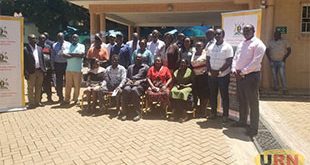
Failing national carriers
As plans to revive the national carrier gain steam, questions about whether it is a good move at this time are also rising. Several critics point at the poor performance of national carriers around the globe to show it as a wrong move.
From Africa to Asia to Europe, the national carriers continues to post losses, raiding state coffers to stay in the air as a result of stiff competition, oil price fluctuations, and uncertainties in the globally economy.
In Africa, Kenya Airways, South African Airways, Air Zimabwe, Air Nambia, Camair-Co and Air Botswana have all continued to raid their state-coffers to keep flying their wings
Last year, the Kenya government injected $250million in Kenya Airways to keep going. This is after the carrier suffered losses in three straight consecutive years citing foreign exchange losses including interest rate expenses.
Kenya Airways, which is 26.7 % owned by Air France-KLM, recorded a loss of $258.3 million in the year ended March 2016 widening the $251miliion loss the year before. This was the same situation in the previous year having recorded a more than expected $92milion loss.
South African Government injected worth $350million in the South African Airways during the same period as the carrier continued to register losses.
SAA is said to be currently surviving on state guarantees having recorded losses for several years now, with the loss standing at $ 130.6million for the financial year 2015/16 compared with the $340.8million loss a year before. In November last year, the South African government hired a Bain&Co to advice on a strategy of loss making national carrier.
The investment firm is also intended to advise the national treasury on the country’s two other state-owned airlines: South African Express and low cost carrier Mango, with the view of merging SAA and South African Express as it seeks for an equity partner in the flag carrier.
Similarly, the Namibian Government has injected more than $290million in Air Namibia over the last 15 years whereas the Zimbabwean Government injected close to $300million in Air Zimabwe to remain operational having suffered losses and accumulated debts over the years.
RwandAir, which started its operations in 2002 and now boasting of 11 aircrafts, has continued to register losses even as it continues to expand its network across the African continent, Middle East and Asia.
The carrier has in the past two years sought to sell 30% stake to acquire capital it needs to improve efficiency, and fend off competition from regional and international competitors. However, the airline is yet to get any interested party.
Egypt Air, with 79 aircrafts, has suffered accumulated losses of $1.58 billion since January 2011, stemming from the revolution that saw ousting of Hosni Mubarak and the downing of Russian plane in 2015 in Egypt.
Other national carriers including Air Nigeria, Ghana Airways, Air Gabon, Air Senegal, Gambia Bird Airlines, and Zambia Airways have folded over the past decade due to losses and accumulated debts amidst stiff competition.
In Asia, India’s national carrier, Air India has made losses over the past decade and the government is now under pressure to privatize the airline. In 2012, the Indian Government gave over $4.4billion under a bailout plan stretching a period of nine years to turnaround the company.
The only flourishing national carriers including Ethiopian Airlines and Morocco’s Royal Air Maroc on the African continent and the Middle East national carriers such as Emirates, Etihad, and Qatar Airways, and are said to have benefitted from government funding but allowed to operate with limited interference.
Ethiopian Airlines CEO Tewolde Gabremariam told Financial Times that the company has been growing at 20-25% annually in revenue and fleet size over the past five years due to good government policies of non-interference in the airline’s operations.
In the year ended June 2015, Ethiopian Airlines recorded net profit of $148million compared with $87.4million a year earlier, with the analysts attributing much of this success to the carrier’s owner, which does not demand dividends.
It has also acquired a 40% stake in a Togo-based ASKY Airlines, private airline established by the West African governments in 2007 and 49% stake in the loss making Air Malawi in Malawi in 2013.
 The Independent Uganda: You get the Truth we Pay the Price
The Independent Uganda: You get the Truth we Pay the Price



